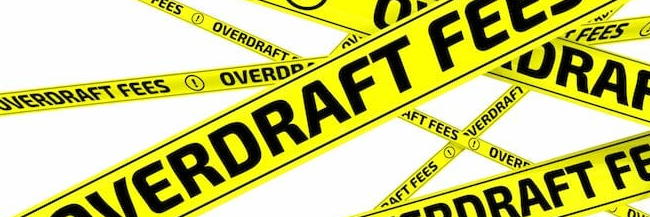
WHAT IS AN OVERDRAFT FEE? HOW DO YOU AVOID THEM?
Many people have asked, ‘what is an overdraft fee?’ It’s a question that comes up often, so it’s helpful to learn what it is. That way, you can look for this information on bank/credit card accounts to know if you’re being charged and why. Along with such, you can find a variety of ways to avoid them altogether.
So, What Is an Overdraft Fee?
Overdraft fees are charged to your accounts when you don’t have enough cash in them to cover a payment you made. Many times, your bank accounts automatically come with overdraft protection, but you may have to sign up for it yourself. Regardless, the bank will cover the amount you can’t afford, keeping your account in the black. However, when funds are available again (such as when you get your next paycheck), a fee is included for that protective service.
Typically, these fees average about $34 for banks. If you frequently overdraft your account, you can expect to pay up to $450 a year. It can help to learn more about them to help you learn to manage your finances better.
What is an overdraft fee? In a sense, you don’t have the money to cover a payment or automatic withdrawal you’ve made. Your financial institution pays that transaction from your account anyway, which shows a negative balance on the account. You get charged the overdraft fee, but the bank covers that full payment. Then, you are usually debited the amount you couldn’t pay before, which can be considered a short-term loan from the bank.
-
OPPLOANS
 Our take:Lender focused on poor credit, based out of Chicago currently offering loans in 29 statesAPPLY NOWLender: OppLoansCredit ScoreLoan Size/AmountLoan TermAPROrigination Fee350 – 600$500 – $5,0009 – 2459.00% – 199.00%0.00% – 3.00%
Our take:Lender focused on poor credit, based out of Chicago currently offering loans in 29 statesAPPLY NOWLender: OppLoansCredit ScoreLoan Size/AmountLoan TermAPROrigination Fee350 – 600$500 – $5,0009 – 2459.00% – 199.00%0.00% – 3.00%
Federal regulations make it mandatory for most financial institutions to get your consent before adding you to its overdraft protection program. However, as a way around this, these institutions require you to opt-in for overdraft protection as part of opening your account.
Depending on the institution, automatic checks and payments may not incur overdraft fees. You should be aware that some credit unions and banks return those transactions and checks unpaid. Therefore, you could be charged an NSF (nonsufficient funds) fee. This is usually the same amount as the overdraft fee.
How Much Do These Fees Cost You?
If you aren’t careful, overdraft fees can cost you a lot of money each year. The Consumer Financial Protection Bureau has estimated that NSF and overdraft fees cost American consumers about $17 billion each year. As such, these fees are the largest banking-related expense that consumers have when owning a checking or savings account.
According to the CFPB, many overdraft fees happen for transactions that are less than $24 and are paid by a debit card. They are typically repaid within the next three days.
When you consider that overdraft fee in the context of a short-term loan, you would take out the $24 as a standard loan, pay that $34 to borrow that money for three days, and end up with a 17,000-percent APR, similar to the fees you would see with a payday loan. It’s easy to see that overdraft fees are just an unnecessary expense, so it is a good idea to learn to avoid them.
How to Avoid Overdraft Fees
Because overdraft fees can add up, you might want to consider a few ways to avoid them. Most banks allow you to set up balance alerts, so you can be texted or called when your account goes below a particular amount. You may also want to start tracking your expenses more carefully. If you use online banking, consider getting the bank app and sign into it at least once a day to see how much money is available.
-
BONSAI FINANCE
Our take:Online marketplace to find you a personal loan offer that matches your needsAPPLY NOWCredit ScoreLoan Size/AmountLoan TermAPROrigination FeeAll can apply$100 – $15,0001 – 604.99% – 1,386%Varies by lender
For those who have asked, ‘what is an overdraft fee?’ you now know. Taking steps to prevent them is an excellent way to keep your hard-earned money in your account.
